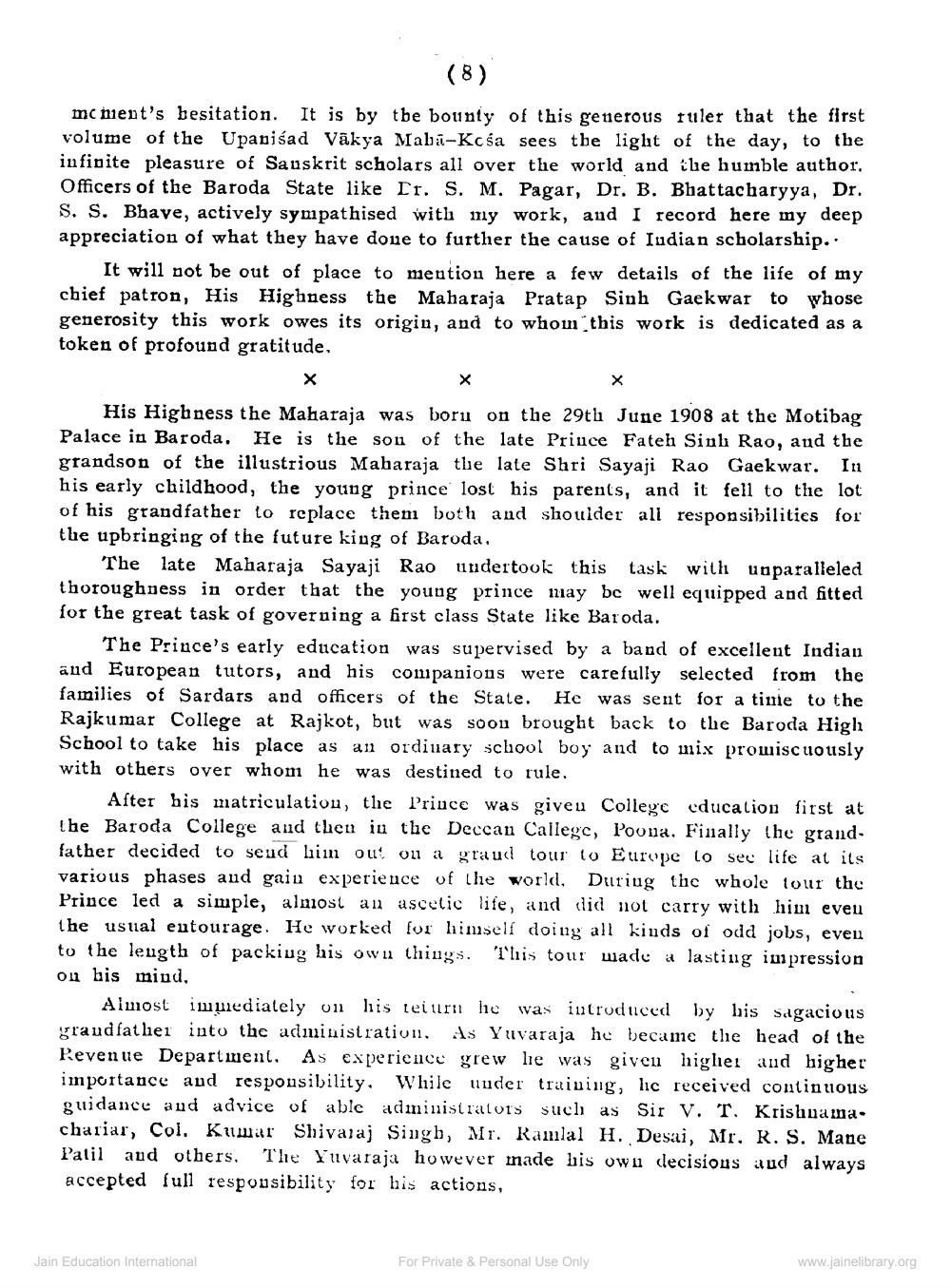________________
(8
)
mc mient's besitation. It is by the bounty of this generous tuler that the first volume of the Upanišad Vākya Mabi-Kcśa sees the light of the day, to the infinite pleasure of Sanskrit scholars all over the world and the humble author. Officers of the Baroda State like Ir. S. M. Pagar, Dr. B. Bhattacharyya, Dr. S. S. Bhave, actively sympathised with my work, and I record here my deep appreciation of what they have done to further the cause of Iudian scholarship..
It will not be out of place to mention here a few details of the life of my chief patron, His Highness the Maharaja Pratap Sinh Gaekwarto whose generosity this work owes its origin, and to whom this work is dedicated as a token of profound gratitude,
х
His Highness the Maharaja was boru on the 29th June 1908 at the Motibag Palace in Baroda. He is the son of the late Prince Fateh Sinh Rao, and the grandson of the illustrious Maharaja the late Shri Sayaji Rao Gaekwar. In his early childhood, the young prince lost his parents, and it fell to the lot of his grandfather to replace them both and shoulder all responsibilities for the upbringing of the future king of Baroda.
The late Maharaja Sayaji Rao undertook this task with unparalleled thoroughness in order that the young prince may be well equipped and fitted for the great task of governing a first class State like Baroda.
The Prince's early education was supervised by a band of excellent Indian and European tutors, and his companions were carefully selected from the families of Sardars and officers of the State. He was sent for a tine to the Rajkumar College at Rajkot, but was soon brought back to the Baroda High School to take his place as an ordinary school boy and to mix promiscuously with others over whom he was destined to rule.
After his matriculation, the Prince was giveu College education first at the Baroda College and then in the Deccan Callege, Poona. Finally the grandfather decided to send liian out ou a graud tour to Europe to see life at its various phases and gain experience of the world. During the whole tour the Prince led a simple, almost an ascetic life, and did not carry with him eveu the usual entourage. He worked for himself doing all kinds of odd jobs, even to the length of packing his own things. This tour wade a lasting impression on his mind,
Almost immediately on his teiurn he was introduced by bis sagacious yraud father into the administration. As Yuvaraja he became the head of the Revenue Department. As experience grew lie was giveu ligliet and higher importance and responsibility. While uuder training, lic received continuous guidance and advice of able administrators such as Sir V. r. Krishuama. chariar, Col. Kumar Shivaraj Singh, Mr. Ramlal H. Desai, Mr. R. S. Mane Palil and others. The Yuvaraja however made his own decisions and always accepted full responsibility for his actions,
Jain Education International
For Private & Personal Use Only
www.jainelibrary.org




